Partnership Health Center recently launched a new program, the Community Care Team, to provide mobile medicine and other health care services to people experiencing homelessness in Missoula, including those living in Missoula’s Authorized Camping Site, Temporary Safe Outdoor Space and the Emergency Winter Shelter on Johnson Street.
The CCT’s medical team consists of a registered nurse and a rotating resident physician from the Family Medicine Residency of Western Montana who visit each site weekly and safely address any medical needs residents may have. The medical services they provide vary depending on the needs of each individual. When a higher level of care is required, the team connects patients with Partnership Health Center clinics or local hospitals, when appropriate.
“We’re walking from tent to tent or shelter to shelter and will do everything from wound care to answering questions about COVID-19 to helping folks with medication management,” said Abby Berow, registered nurse on the CCT.
In finalized form, the CCT will also consist of two tenancy support specialists, a peer support specialist and an outreach administrator.
“Our goal is to build trusting relationships in an authentic and culturally sensitive way,” said Miranda Sanderson, tenancy support specialist with the CCT. “Building that trust is essential for us to meet our goal of helping people get housed, which in turn serves the ultimate goal of creating health and wellbeing.”
In addition to addressing medical needs, the CCT also focuses on helping people get housed. “Being safely housed is an essential component of creating and sustaining good health,” said Anna Nilles, CCT program administrator. “Simply put, housing is healthcare.”
Laurie Francis, executive director of PHC, said the CCT reflects a more comprehensive approach to health care championed by Community Health Centers like PHC. “While access to healthcare is critical, it is insufficient to reach high levels of health and wellbeing,” said Francis. “Barriers to health and sustainable housing include the intersectional issues of racism, poverty, and discrimination of all types.” These factors, Francis added, have much more to do with structural issues in our society than with individual choices.
The CCT works closely with the Poverello Center, St. Patrick Hospital, Western Montana Mental Health Center and Hope Rescue Mission. These groups communicate frequently through Missoula’s Coordinated Entry System, weekly meetings and other tools to ensure efficient and effective use of resources. Missoula County and the City of Missoula provided American Rescue Plan Act funding to start and sustain the CCT.
By improving health and access to care, the CCT aims to drive down emergency department visits, incarceration rates, police interactions and the demand for behavioral crises facilities. The team will carefully track these metrics and others to evaluate their impact. Berow said she’s already seen progress on this front.
“Just the other day we helped someone who was diabetic and hadn’t had access to insulin for three months, and last week a patient likely avoided either or foot or leg amputation because they became housed and were able to have their basic needs met,” Berow said.
“This work matters on so many levels. The cost savings to our community are huge, but on the human level, it can transform lives.”
News media can contact Anna Nilles at Nillesa@phc.missoula.mt.us or 406-258-4364 for more information. Laurie Francis can also be reached at francisl@phc.missoula.mt.us or 406-258- 3360.

